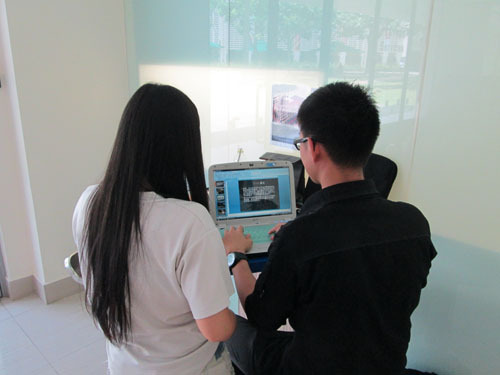
新加坡是全球公認的高性能的教育體系.
由於醫生. 吳柏德大約一年前向我們匯報, Singapore has been implementing technology in its education system since 1997. A three step “總體規劃” initiative was kicked off beginning with Masterplan One (1997-2002), the goal being to allow students computer usage for 30 percent of their curriculum time in fully networked schools with a computer to pupil ratio of 1:2. Masterplan Two of Singapore Information and Communications Technology (ICT) was aimed at motivating teachers to use ICT effectively in teaching and learning. Masterplan Three (2009-2014), currently in progress, is built on the first two Masterplans but aims to be more transformative, the goal being to equip students with the critical competencies to succeed in a knowledge economy. How are they doing in K through 12 超越? 我問醫生. Pak Tee Ng to give us an update.
博士. 白T卹吳是副院長, 領導力學習, 研究生學習和專業學習的辦公室, 系主任,副教授, 政策與領導學學術組, 在國立教育研究院, 南洋理工大學, 新加坡共和國.
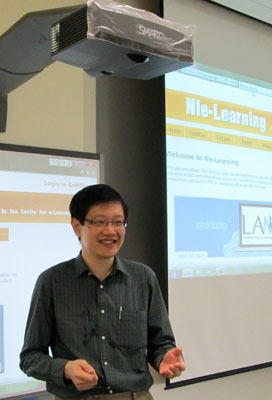
How has technology impacted the Singapore education system? 你看到了什麼是從學習的角度來看,利弊?
如今, campus-wide wireless Internet connectivity, classroom computers with projection equipment, teachers and students with their own laptops or other mobile ICT devices are commonplace in Singapore schools. Technology is quite pervasive, but it is not the equipment that we are interested in. 從學習的角度來看, we are more interested in how technology can transform learning and bring it to a higher level for our students. Singapore believes in the use of technology in education. But we are cautious that we do not use technology for the sake of using it. Inappropriately used, technology can be a distraction rather than a help. We are encouraging our teachers to explore more in this area.
How is the role of the Singapore teacher changing in the digital age?
In the digital age, there will be a lot of information that is available in the virtual medium. Teachers have to help students make sense of this large volume of information and to differentiate good information from potential misinformation. Teachers have to facilitate student discourse in the e-discussion forums and lead students in creating actual usable knowledge. These learning activities require a high level of facilitative and synthesizing skills. 然而, that does not mean that teachers do not conduct face-to-face teaching. Contact hours become more valuable and should be focused on higher order thinking and learning, instead of information transmission.
Although the use of ICT is not exactly new in education, there is still a lot of room for development in this area. 因此,, teachers are encouraged to be change agents of educational processes, so that new technologies may be harnessed for educational purposes. Senior teachers also play the role of mentors to beginning teachers in the effective use of ICT in their respective disciplines and to champion appropriate change.
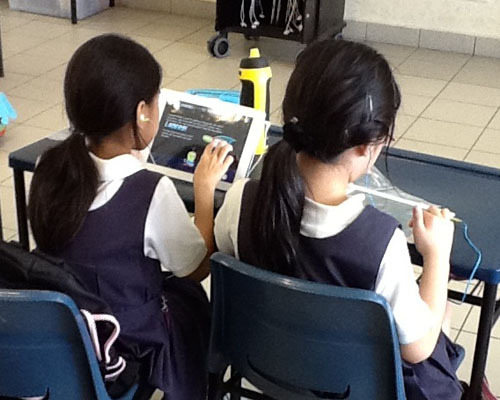
在美國整個國家都採用了數字教科書. 大學圖書館正在成為數字內容庫. Many would say textbooks have already gone digital and indeed, the next generation of digital content is not far behind. What digital learning tools have been implemented in Singapore and what do educators see as the pros and cons of these?
Digital learning tools are getting more popular and pervasive in Singapore. University libraries are indeed going digital. 事實上, they are more accurately described as a ‘space’ than a ‘place’. Most academics and research students nowadays will download an e-article than read a hard-copy journal.
Many desktops have been phased out. Laptops, 平板電腦, iPads and Androids are quite common among young people. Various schools have also implemented Learning Management Systems (LMS’s) such as Blackboard, WebCT and Moodle. 但, as I said, we are not as interested in the tool itself as the pedagogy that it can enable. Technology should not be used just to support traditional teaching methods in terms of productivity. 代替, the challenge is to learn how technology can be used in a student-centered manner to enhance student learning or even to bring about learning that was not possible in the past without technology. In the digital age, information is made more easily available and that is good for education. 然而, having information easily available is not the same as having better learning. We are more interested in raising the standards of learning, rather than just having more information.
How has technology impacted curriculum design in Singapore?
大體, curriculum should be designed to achieve challenge, enjoyment, breadth and depth, personalization and choice, coherence and relevance. It is quite apparent that technology has the power to help in each of these areas. One of the advantages of ICT is that it can expand access to education. 通過ICT, students can access online course materials anytime and anywhere, learning at their own pace. E-discussion forums allow many students to discuss learning content at the same time. Video clips, audio sounds and graphical presentation bring content to life.
新加坡, one of the main impacts of technology is a shift in the mindset of educators to discover how curriculum and the teaching environment can become more learner-centered through the enabling of ICT. Instead of always relying on the traditional curriculum, we now have more experiments with modular approaches, flipped classrooms and learning content beyond the shores of Singapore. 然而, while encouraging experimentation, we continue to take a balanced and judicious approach in this area, paying attention not just to the tools but also to capacity building among educators for change. The use of technology and changes in curriculum design need to move in tandem.
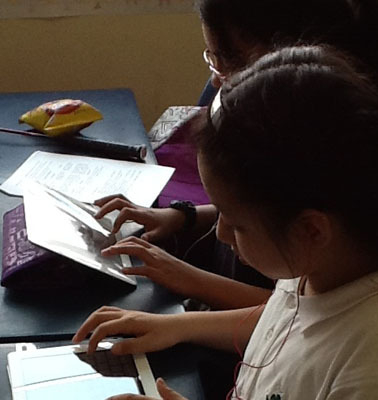
The latest Pew research once again indicates that the use of tablets, 手機, Internet sources and social media platforms such as Facebook and Twitter continues to infiltrate classrooms in the US rapidly. Are you seeing the same trend in Singapore classrooms? 到什麼程度是利用你的課程,這些工具的一部分的? 是否有年齡低於你相信這些工具不適合在教室?
新加坡, the use of tablets, 手機, Internet sources and social media platforms such as Facebook and Twitter is commonplace among young people. It is a lifestyle change, rather than an education change. 大體, schools are free to experiment with social media tools as learning tools. Our concern is the responsible use of such tools among young people. We are educating the young regarding issues of cyber-wellness and cyber-bullying.
Is there an age below which ICT tools are not appropriate in classrooms? This is a difficult question to answer authoritatively. Some researchers do not recommend computer use for children under 3 歲. There may be a problem of confusing “現實” 同 “virtual” when children are too young. 新加坡, we are trying out some ICT tools, such as iPads, with preschoolers. 但同樣, we are cautious and balanced in our approach. Preschoolers are at a stage of learning to master skills such as speaking and making friends. They should interact more with human beings and natural objects. 他們是, we start in a small way in preschool, and incrementally expose children to such tools at the higher levels, while educating them about cyber-wellness.
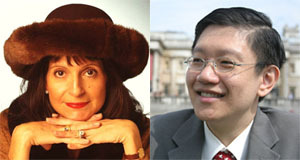
Photos courtesy of Pak Tee Ng and National Institute of Education, 南洋理工大學, 新加坡共和國.
在得到技術的更多文章? 系列: 全球搜索教育: 得到技術? – 芬蘭, 全球搜索教育: 得到技術? – 加拿大, 全球搜索教育: 得到技術? – 澳大利亞, 全球搜索教育: 得到技術? – 美國, 全球搜索教育: 得到技術? IB學校在虛擬世界, 全球搜索教育: 得到技術? – 阿根廷
在全球搜索教育, 和我一樣,全球知名的思想領袖,包括邁克爾·巴伯爵士 (英國), 博士. 邁克爾座 (美國), 博士. 萊昂特司特因 (美國), 克萊克里斯坦森教授 (美國), 博士. 琳達·達林 - 哈蒙德 (美國), 博士. 馬達夫恰範 (印度), 邁克爾·富蘭教授 (加拿大), 霍華德·加德納教授 (美國), 安迪·哈格里夫斯教授 (美國), 伊馮娜赫爾曼教授 (荷蘭), 克里斯汀Helstad教授 (挪威), 讓·亨德里克森 (美國), 玫瑰Hipkins教授 (新西蘭), 科妮莉亞Hoogland教授 (加拿大), 這位傑夫·約翰遜 (加拿大), 太太. 尚塔爾考夫曼 (比利時), 博士. Eija Kauppinen (芬蘭), 國務秘書塔皮奧Kosunen (芬蘭), 多米尼克·拉方丹教授 (比利時), 休·勞德教授 (英國), 本·萊文教授 (加拿大), 主肯麥克唐納 (英國), 巴里McGaw教授 (澳大利亞), 希夫納達爾 (印度), Ř教授. 納塔拉詹 (印度), 博士. 吳PAK (新加坡), 博士. 丹尼斯教皇 (美國), 斯瑞達拉賈戈帕蘭 (印度), 博士. 黛安·拉維奇 (美國), 理查德·威爾遜·賴利 (美國), 肯·羅賓遜爵士 (英國), 帕西SAHLBERG教授 (芬蘭), 押尾佐藤教授 (日本), 安德烈亞斯·施萊歇 (PISA, 經合組織), 博士. 安東尼·塞爾頓 (英國), 博士. 大衛·謝弗 (美國), 博士. 基爾斯滕都沉浸式 (挪威), 總理斯蒂芬·SPAHN (美國), 伊夫Theze (法國公立高中美國), 查爾斯Ungerleider教授 (加拿大), 托尼·瓦格納教授 (美國), 大衛·沃森爵士 (英國), 迪倫Wiliam教授 (英國), 博士. 馬克沃莫爾德 (英國), 西奧Wubbels教授 (荷蘭), 邁克爾·楊教授 (英國), 和張民選教授 (中國) 因為他們探索所有國家今天面臨的大畫面的教育問題.
全球搜索教育社區頁面
ç. M. 魯賓是兩個廣為傳誦的在線系列,她接受了筆者 2011 厄普頓·辛克萊獎, “全球搜索教育” 和 “我們將如何閱讀?” 她也是三本暢銷書, 其中 真正的愛麗絲夢遊仙境.
按照ç. M. 魯賓在Twitter: www.twitter.com/@cmrubinworld


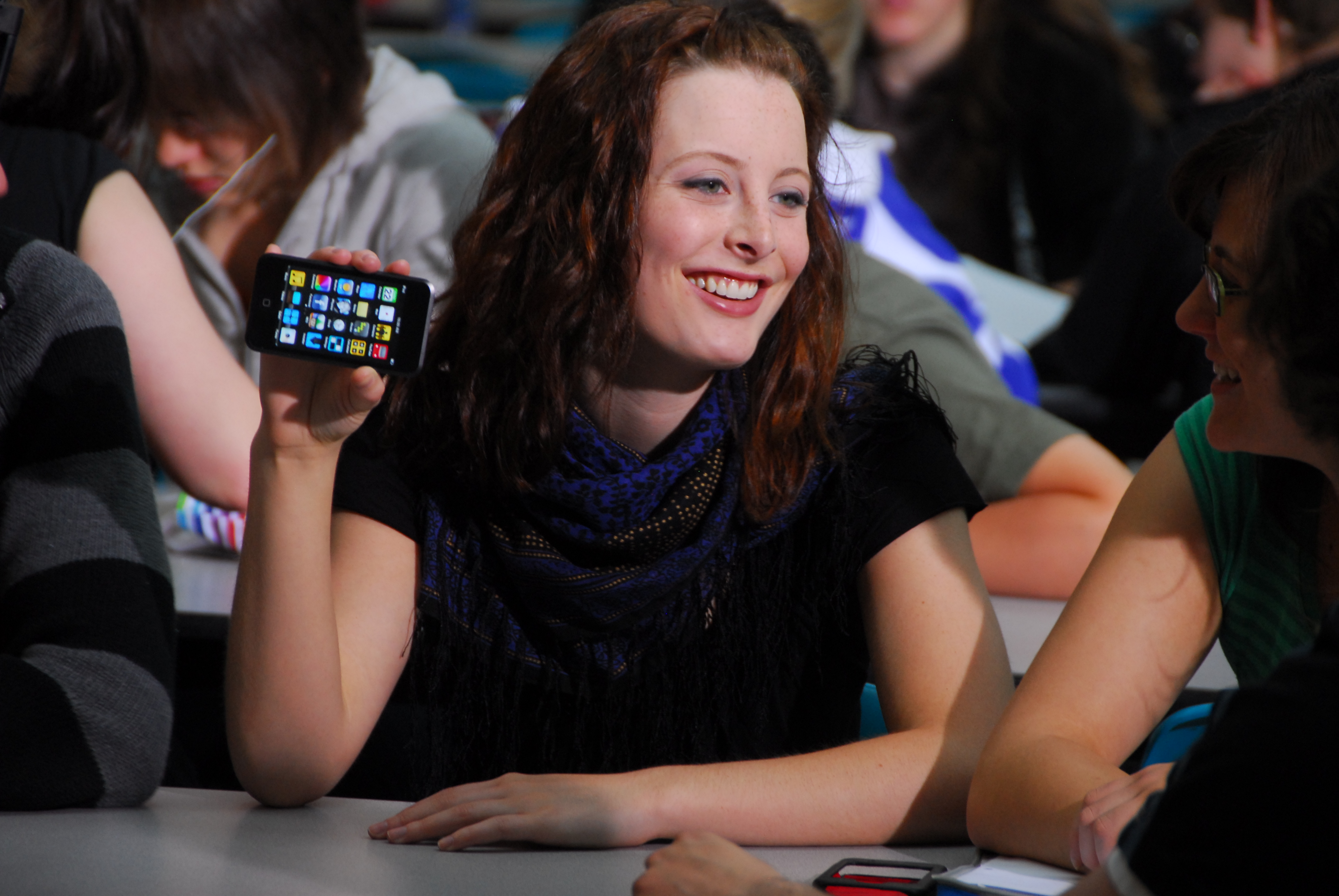
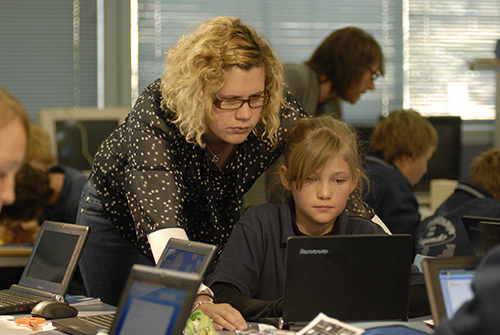
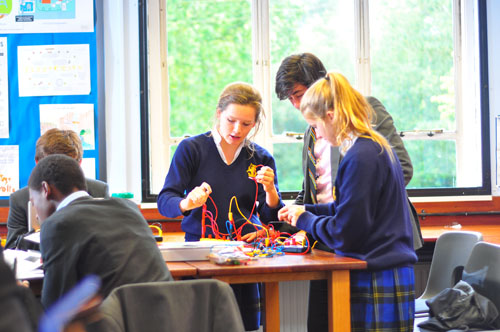
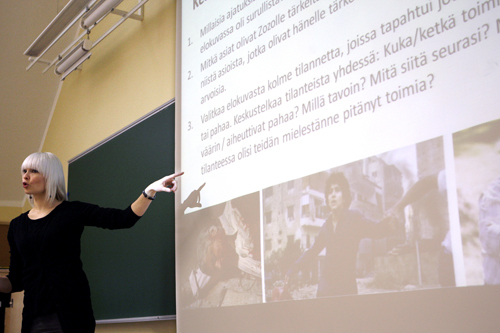
最新評論